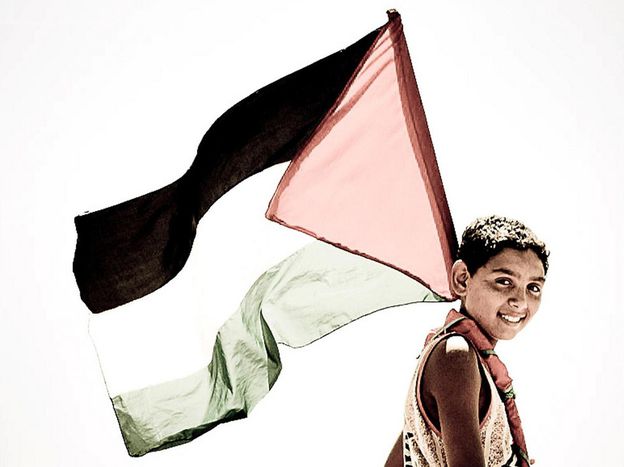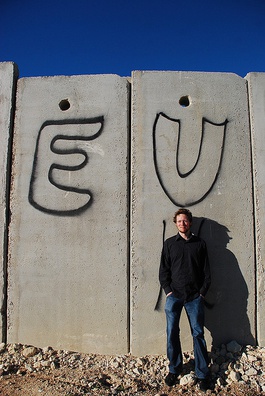
Baking a state for Palestine at the United Nations kitchen
Published on
Translation by:
 hkeet
hkeet
64 years ago, the UN granted the Palestinians a state on 43% of the former mandate Palestinian territory. This state never came into being. The bid for this and UN membership will likely take place on 24 September. A divided EU once again shows its reluctance to form a common foreign policy with the member states’ 'for', 'against' and 'wait-and-see' positions
Everybody knows that the European union (EU) is openly divided on the vote that would give Palestine a status of 'member state' in the United Nations. Italy, the Netherlands and the Czech Republic are among the states that will vote against the Palestinian resolution. Germany will vote against for both economic and historical reasons; it maintains a policy in support of the Israeli state. Among those who said they would support it are Belgium, Sweden, Norway and Spain. It is reasonable to think that the Norway, Sweden and Finland’s positions are more ethical, in accordance with the will of the citizens and thus clearly grounded on the Palestinian side. Meanwhile, Spain maintains its rather favourable course towards the Arab countries (with the notable exception of their involvement in the war in Iraq). Under US pressure, Britain has no opinion, whilst France announced the possibility of the country having a 'non-member status' in the United Nations.
EU and Israeli views
European contradictions are definitely related to the fact that the EU is funding the Palestinian Authority while it is also Israel’s main trading partner. Europe’s position on the Israeli-Palestinian conflict stems from the Venice Declaration of 1980. Sheltered behind neutral formulas on Israel’s right to defend its borders and Palestine’s right to call for a state, Europe is above all showing benevolence towards Israel. Its neutrality is now being put to the test. In this sense, the US veto, which has been announced in advance, simplifies the blurred (if not hypocritical) positions of France and Britain.
The EU is funding the Palestinian Authority while it is also Israel’s main trading partner
Yet polls show majority support for the resolution comes from the EU's people in virtually every case, since the rise of anti-Arab extremism and the election of reportedly pro-Israel conservative governments could indicate a form of contradiction. In Israel, only a minority is in favour of supporting the Palestinian demand. The 400, 000 people who took to the streets in recent weeks do not seem to be seeking a common position. This is perhaps because the Palestinian issue continues to divide the population; many do not believe in a two-state solution, or remain convinced that the Palestinians’ long-term goal is the destruction of the Jewish state. However, Israeli citizens are still struggling for a more just and social state. It is a battle which is justified by their government’s astronomical investments in the defence sector (about 20% of the budget).
'Equals'
 However, voting in the UN General Assembly (of all nations), unlike the (five-member) Security Council, would only give Palestine a status that is symbolic in nature, even if it could change its 'legal reality', as Mahmoud Abbas, the president of the Palestinian Authority, stresses. In particular, Palestine could refer to the international criminal court and, as 16 states before it, take a step towards the status of full member. It could thus go from being a virtual state without territorial continuity to a state within the 1967 borders. This demand is essentially unilateral, but is supported by the Arab League (Palestine is one of the organisation's 22 members - ed) and the majority of African, South American and Asian countries. It represents a key moment in the Palestinians’ process of self-determination and emancipation because, as rightly pointed out by Leila Shahid, general delegate of Palestine to the EU, a change in status would enable the Palestinian state to negotiate with Israel 'as equals'. Peace negotiations are also wanted by Europe and the United States.
However, voting in the UN General Assembly (of all nations), unlike the (five-member) Security Council, would only give Palestine a status that is symbolic in nature, even if it could change its 'legal reality', as Mahmoud Abbas, the president of the Palestinian Authority, stresses. In particular, Palestine could refer to the international criminal court and, as 16 states before it, take a step towards the status of full member. It could thus go from being a virtual state without territorial continuity to a state within the 1967 borders. This demand is essentially unilateral, but is supported by the Arab League (Palestine is one of the organisation's 22 members - ed) and the majority of African, South American and Asian countries. It represents a key moment in the Palestinians’ process of self-determination and emancipation because, as rightly pointed out by Leila Shahid, general delegate of Palestine to the EU, a change in status would enable the Palestinian state to negotiate with Israel 'as equals'. Peace negotiations are also wanted by Europe and the United States.
Despite Obama’s very noteworthy speech in Cairo in June and his statements on a Palestinian state that may soon sit in the UN, the US have blown the whistle on a counter-productive approach which they would oppose, irrespective of its form. In any case, they were (like the EU) forced to assume a pragmatic policy that places the Palestinian issue into the background, behind domestic policy, including meeting the expectations of powerful lobbies. Some might see a missed opportunity here for the westerners to change the deal and participate in the profound changes underway in the region. Furthermore, it is an illustration that our states are struggling to see the problems as a whole; that they have little regard for small countries without resources and they do not want to support changes that are inevitable — regardless of the views of the citizens.
Images: (cc) abangbay @ Malaysia; in-text (cc) sven_kindler/ both courtesy of Flickr
Translated from La démarche palestinienne met l’Europe face à ses contradictions


